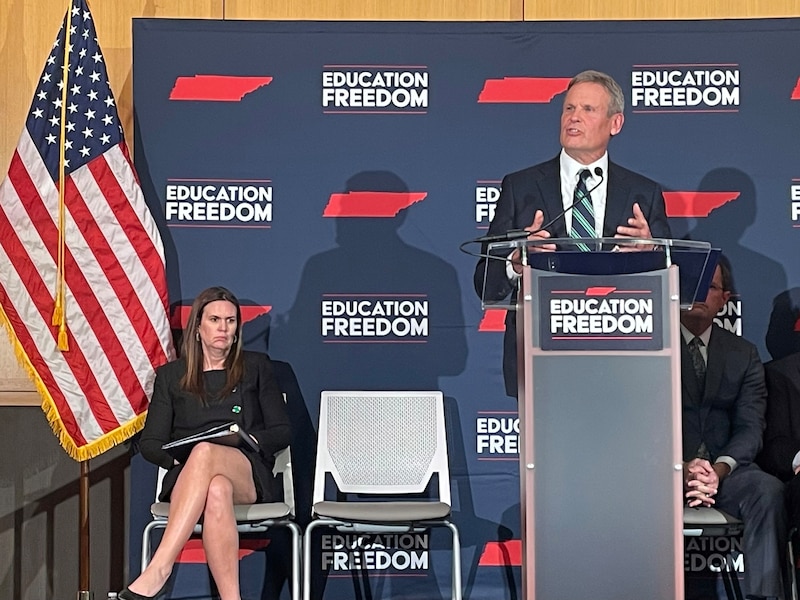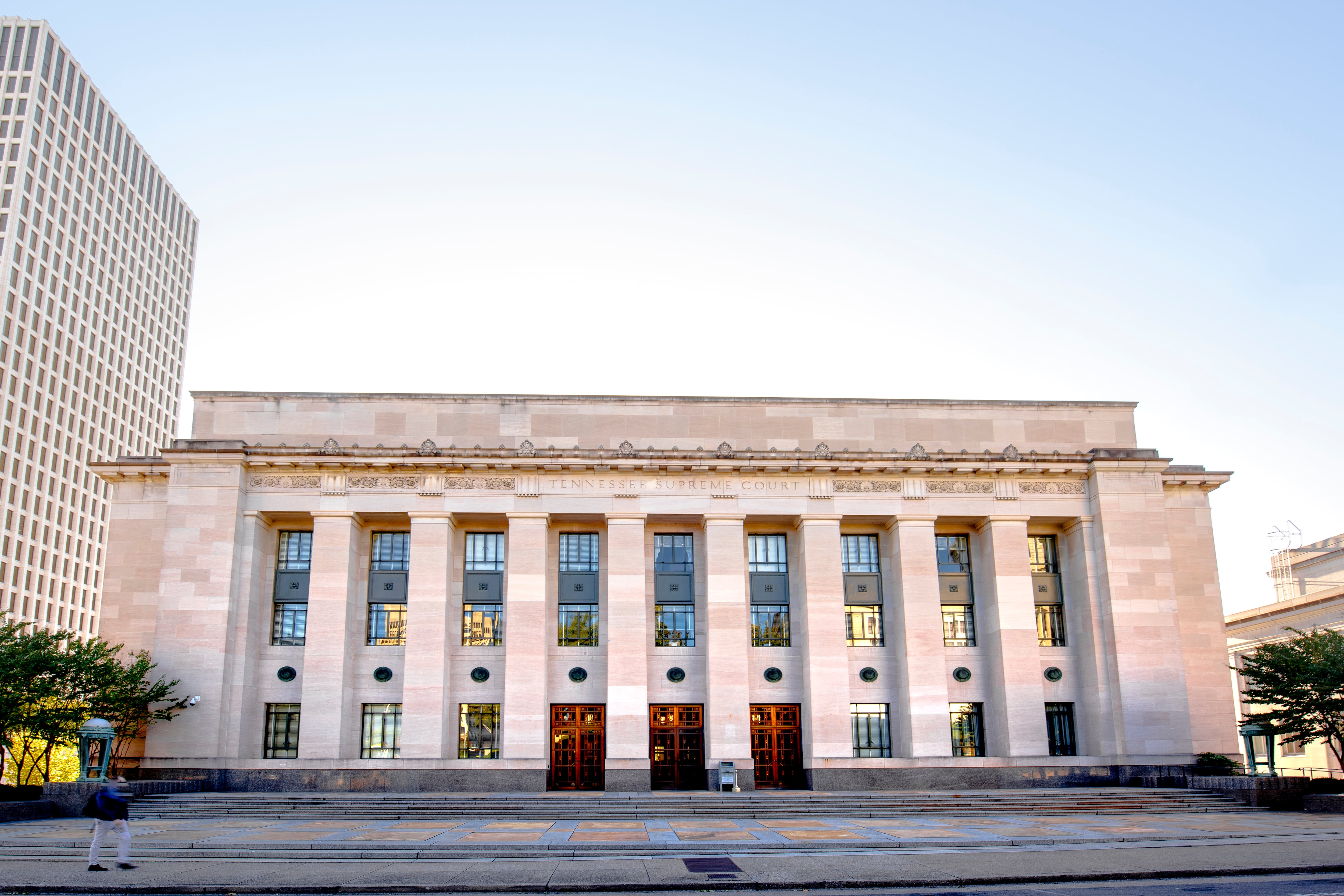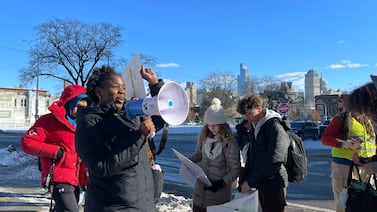Chalkbeat is a nonprofit news organization covering public education in communities across America. Sign up for our free Tennessee newsletter to keep up with state education policy and the Shelby County public school system.
A legal challenge to Tennessee’s private school voucher law is back on track after a state appeals court ruled that a lower court erred in dismissing the case.
The three-judge Court of Appeals said Wednesday that a trial-level judicial panel acted prematurely in 2022 when it declared that Davidson and Shelby county governments, along with a group of parents, had no legal standing to challenge the 2019 Education Savings Account law, which provides families with taxpayer money to pay toward private school tuition.
The appellate court, in sending the case back to the trial court, also said the case’s remaining legal claims are “ripe for judicial review.”
The unanimous decision breaks a string of legal victories for voucher backers in Tennessee, where Gov. Bill Lee’s administration is proposing an expansive new program that would ultimately make vouchers accessible to all students in all 95 Tennessee counties, without the family income limits that are part of the current program.
Lee, who has campaigned on a pledge to expand alternatives to traditional public schools, has sought to capitalize on parent anger over pandemic-era school closures and disagreements over what kids are taught.

First-year test scores were disappointing
Meanwhile, Tennessee Education Commissioner Lizzette Reynolds told lawmakers Wednesday that the first state test scores of students using vouchers to attend private schools in Shelby and Davidson counties were lackluster.
“The results aren’t anything to write home about,” Reynolds told the Senate Education Committee. “But at the end of the day, the parents are happy with this new learning environment for their students.”
The first results came out of Davidson and Shelby counties in 2022-23, before the legislature added Hamilton County to the program this school year. According to data from the state education department, most of those 452 students performed worse than their peers in public schools after the program’s swift rollout early that school year.
Reynolds told lawmakers she’s hopeful for better scores this spring from participants in all three counties.
“We are only technically a year and a half into implementation,” she said.
Sen. Raumesh Akbari of Memphis, the panel’s lone Democrat, said the early results from the Education Savings Account pilot program should give state leaders pause about rapidly expanding access to vouchers.
“It says ‘pilot’ because we want to see how it works,” Akbari said during Wednesday’s hearing. “And we only have a year and a half of data, and we’re already talking about expanding the program.”
The expectation, Akbari added, was that students using vouchers would perform as well as or better than students in public schools.
Legal challenge enters its fifth year
The legal dispute over Tennessee’s voucher law began a year after the legislature narrowly approved Lee’s ESA bill in 2019, via a controversial House vote. A Nashville judge soon declared the law unconstitutional because it affected only the state’s two largest cities, Memphis and Nashville, without giving them a say. That judge said that legislative approach violated the state constitution’s “home rule” provision.
But a split Tennessee Supreme Court overturned the decision in 2022, clearing the way for the program to launch that fall. Now with three counties participating, the program remains under-enrolled with 2,134 students, significantly below this year’s 5,000-seat cap, according to the state’s latest count.
The case is now being tried on several remaining legal issues, including a constitutional clause that requires the state to maintain a system of “free public schools,” with no mention of private schools.
However, Metro Nashville and Shelby County governments are no longer involved in the case. They withdrew as plaintiffs last year and declined to comment on their retreat.
Plaintiffs behind a second lawsuit, which was filed in 2020 on behalf of 11 public school parents and community members in Memphis and Nashville, are continuing to fight the law in court.
Called McEwen v. Lee, the complaint was filed by the Education Law Center and the Southern Poverty Law Center, collaborators in a national campaign that opposes vouchers and wants public funds used exclusively to support and strengthen public schools. The plaintiffs are also represented by the American Civil Liberties Union of Tennessee and the Nashville law firm Robbins Geller Rudman & Dowd LLP.
“We are gratified by this Court of Appeals opinion and look forward to pursuing these claims in chancery court,” Chris Wood, a Nashville lawyer helping to litigate the remaining lawsuit, told Chalkbeat on Thursday.
Officials with Nashville’s legal department, which took the lead in litigating the case for Davidson and Shelby counties, said they expected the appellate court’s ruling, but that the favorable opinion does not affect its decision to pull out of the dispute.
A spokesman for the attorney general’s office said the state is reviewing the appellate decision, while a spokesperson for the governor declined to comment on the court case.
“Gov. Lee’s Education Freedom Scholarship Act is an entirely separate legislative proposal, and we look forward to working with the General Assembly to ensure Tennessee parents have choices,” said Elizabeth Johnson, Lee’s press secretary.
You can read the 29-page ruling on the state court website.
Marta Aldrich is a senior correspondent and covers the statehouse for Chalkbeat Tennessee. Contact her at maldrich@chalkbeat.org.







